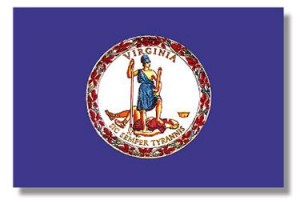
State False Claims Act Settlement with Level 3 Communications
As regular readers know, one of our specialties here at vaquitamlaw.com is state false claims act settlements and, in particular, state Attorney Generals who make interesting use of their state FCA to combat fraud on the public fisc.
So I am very pleased to report a settlement this week from the Commonwealth of Massachusetts with Level 3 Communications. Massachusetts Attorney General Maura Healy announced the settlement on March 7, 2016, in which Level 3 agreed to pay $8 million to the Commonwealth.
Those interested can read the settlement agreement here.
There are a couple of other interesting factors about this one, but a bit of background is in order first.
Who is Level 3 Communications and why would they lease space along state highways?
Level 3 Communications might just be the biggest company most people have never heard of. As one of only seven Tier 1 internet providers in the world, Level 3 owns and operates roughly one-seventh of the physical “skeleton” of the internet. This is quite a lucrative business for the obvious reasons.
Building that physical infrastructure is complicated and maintaining it is even more complicated. One of the ways companies like Level 3 simplify is by running fiber-optic cables alongside interstates and other fixed, stable assets. This makes it easier to install the fiber optic cable and it also makes it easier to repair and maintain it.
In 2000, MassDOT and Level 3 entered into a 30-year agreement in which Level 3 agreed to pay MassDOT annual rent in exchange for the right to install and maintain conduits to run fiber optic cables alongside several Massachusetts highways.
Pursuant to the contract between the parties, Level 3’s annual rent obligation is based on, among other things, the number and length of fiber optic cables it installed and is subject to potential offset for certain in-kind benefits to MassDOT.
Importantly, Level 3 is also required to provide MassDOT annual certifications reflecting the number of fiber optic cables it installed in the conduits.
Violations of the Massachusetts FCA by Level 3 Communications
My readers tend to be a cynical bunch, so you can probably see where we are going from here. Level 3 overstated the in-kind benefits it was entitled to offset from its lease payments and knowingly reduced its lease payments in an unlawful manner.
In some ways, this case is very similar to the oil and gas lease cases we see with the federal False Claims Act. Oil and gas companies are required to pay a royalty to the United States for the right to drill for oil and gas on public lands…and many such companies fail to accurately report the amount of oil and gas they recover.
Examples of the sort of chicanery associated with oil and gas leases are plentiful. In fact, over the last 16 years more than $3 billion has been recovered from big oil companies using the federal False Claims Act.
But this is the first case I am aware of that involves leases for the use of public infrastructure like highways, and congratulations are in order to the Commonwealth of Massachusetts and General Healy.
I would also like to point out some fine work by other parts of the Commonwealth’s state government.
Importance of Cooperation Between MassDOT and General Healy’s Office
Last but not least, I would also like to point out that although this was an important state false claims act case, this was not a qui tam case — meaning, there was no relator to provide the type of inside information that is so important to cases like this. Instead, the various branches of state government had to identify the false claim, get it into the right hands, and then generate the evidence…no small feat when you are talking about a scheme that, by definition, is concealed and secret.
If there is one thing I have learned in prosecuting these non-healthcare state FCA cases, it is this — cooperation between the state agency and the state AG’s office is critical to a good outcome to a state false claims act settlement. This is not unique to state-level FCA enforcement, of course, and even in federal cases your qui tam will suffer if the federal agency does not agree with your theory of the case…but I digress…
MassDOT Secretary and CEO Stephanie Pollack and her team deserve some recognition, because it was her agency that (1) caught the false claims by Level 3, (2) recognized that Level 3 had violated the state false claims act, and then (3) made the referral to General Healy’s office.
Hopefully we will hear more of this sort of thing from the great Commonwealth of Massachusetts and elsewhere soon…stay tuned.
